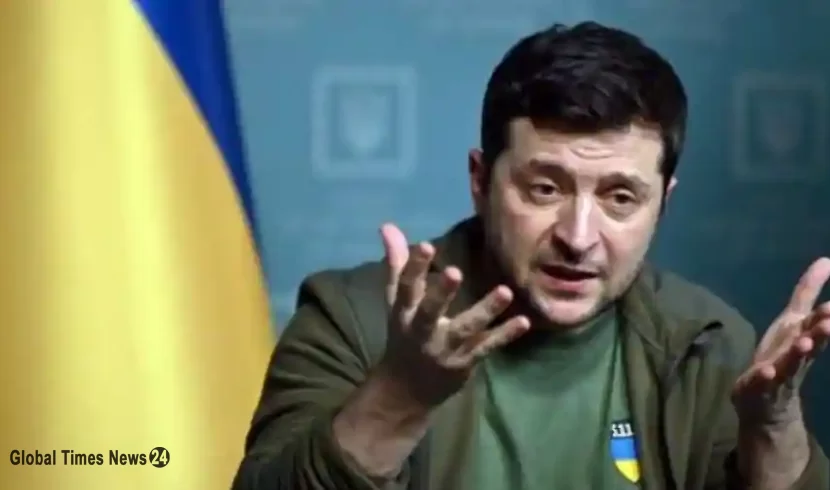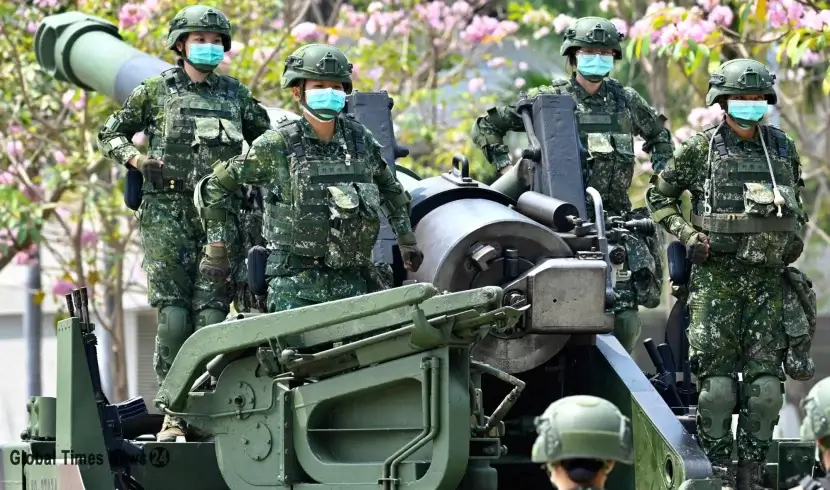Kissinger's Diplomatic Mission to Beijing Spurs Global Speculation and Strategic Shifts
Discussions evolve around escalating tensions, arms aid, and the intricate interplay between global powers
Table of Contents (Show / Hide)

Despite former Secretary of State Henry Kissinger's recent visit to Beijing and meetings with Chinese officials, a mutually agreeable resolution has eluded both sides. The lack of common ground has prompted the United States to adopt further measures to bolster Taiwan's defense capabilities. Reports from Western media suggest that the U.S. President is considering channeling arms support funds earmarked for Ukraine towards arming Taiwan. Meanwhile, Kissinger's mission to Beijing had been geared towards averting a significant clash between these two global superpowers.
In a reported move to support Taiwan's defense efforts, the White House is reportedly considering a proposal to incorporate funding for arms procurement within its supplementary budget request, intended for Ukraine. Sources familiar with the matter have revealed that the U.S. Office of Management and Budget is set to allocate arms credits for Taiwan, streamlining the process of delivering weaponry to the island. If greenlit, this request would mark the inaugural instance of Taiwan accessing arms via the Foreign Military Financing System, a mechanism funded through U.S. taxpayers' resources.
The fading influence of realist perspectives within Washington becomes apparent in the wake of developments. These observers had aimed to avert an intense military escalation, yet the progressively assertive stance taken by White House officials in bolstering arms support for Taiwan signals an eventual likelihood of heightened military strain between the parties involved. Recent events underscore this trend, as the White House unveiled a $345 million arms aid package for Taiwan, facilitated through the "Presidential Authorization to Withdraw Military Stockpiles" mechanism previously employed for arms aid to Ukraine.
The recent dual directives from the U.S. administration, involving the allocation of Taiwan's weaponry funds within the supplementary budget earmarked for Ukraine and the utilization of the pertinent authority to extract these armaments from military stores, underscore a heightened urgency in Washington's approach towards assisting Taipei. While some critics have urged a swifter provision of arms to Taiwan due to increased Chinese military activities near the island, concerns arise over the practical impact of such aid. Despite the support, Taiwan, a distant isle hundreds of kilometers away from the nearest U.S. East Asian base, faces substantial challenges in countering potential Chinese aggression.
Advocate for Taiwan's Armament, Eric Sayers, and Director of Washington's Beacon Global Strategies, remarked, "This verdict stands as a significant stride, signaling the extent to which the U.S. administration is prepared to expedite bolstering deterrence within the Taiwan Strait. While historically we limited our engagement to vending military hardware to Taiwan, the present scenario demonstrates a paradigm shift. Leveraging both presidential authority mechanisms—withdrawal from military stockpiles and foreign military financing—we are channeling armaments to Taiwan, mirroring the efficacious strategies that aided Ukraine."
URL :
News ID : 2356

 Russia says it has destroyed Ukraine's last remaining warship
Russia says it has destroyed Ukraine's last remaining warship
 Ukraine’s president calls on EU to stop ‘sponsoring Russia’s military machine’
Ukraine’s president calls on EU to stop ‘sponsoring Russia’s military machine’
 Netanyahu's Downfall begins with Hamas attack; 56% reject him
Netanyahu's Downfall begins with Hamas attack; 56% reject him
 Liz Truss’ approval ratings lower than ousted PM Boris Johnson
Liz Truss’ approval ratings lower than ousted PM Boris Johnson
 EU Parliamentarians Call for European Union Backing in South Africa's ICJ Lawsuit Against Israel
EU Parliamentarians Call for European Union Backing in South Africa's ICJ Lawsuit Against Israel
 Major sports events of 2022
Major sports events of 2022
 Henry Kissinger meets with Chinese defense minister in Beijing
Henry Kissinger meets with Chinese defense minister in Beijing
 Henry Kissinger: US, China main threat to world
Henry Kissinger: US, China main threat to world
 Are Iranian drones powerful than that of the superpowers?
Are Iranian drones powerful than that of the superpowers?
 US signals $1.1 billion arms package for Taiwan
US signals $1.1 billion arms package for Taiwan
